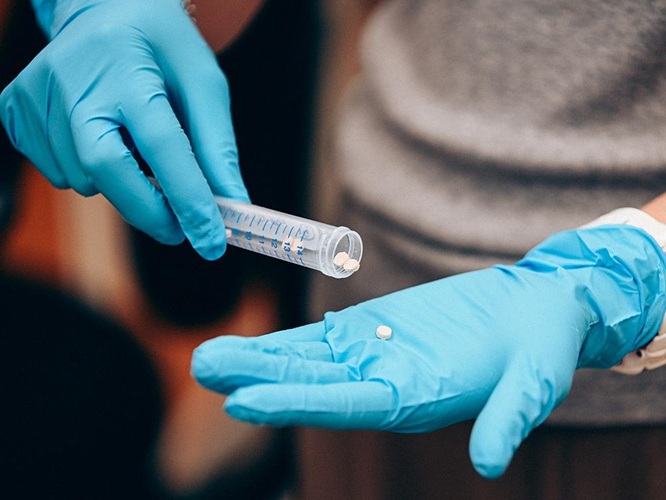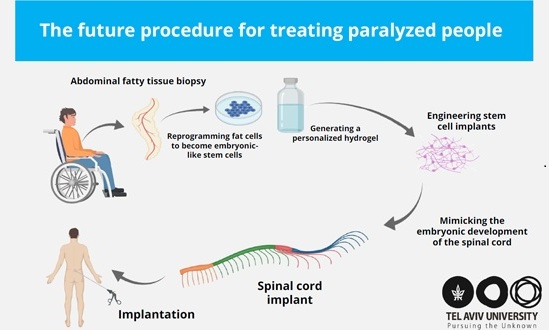Warfarin and Diabetic Drugs Mix Increases Hypoglycemia Risk
|
By HospiMedica International staff writers Posted on 29 Dec 2015 |
A new study warns that a combination of warfarin and sulfonylurea anti-diabetic drugs is linked to increased hospitalization for serious hypoglycemic events and insulin shock.
Researchers at the University of Southern California (USC; Los Angeles, USA) and Harvard Medical School (Boston, MA, USA) conducted a retrospective cohort analysis of pharmacy and medical claims to examine the association between use of warfarin with common sulfonylureas and serious hypoglycemic events. The study included 465,918 Medicare beneficiaries with diabetes (65 years of age and older) who filled a prescription for glipizide or glimepiride between 2006 and 2011; 71,895 (15.4%) of these patients also filled a prescription for warfarin.
The results showed that hospital admissions or emergency department visits for hypoglycemia were 22% higher in diabetic patients during concurrent warfarin use than without warfarin use. The risk was higher among those using warfarin for the first time, as well as in those aged 65-74 years. Concurrent use of warfarin and glipizide/glimepiride was also associated with hospital admission or emergency department (ED) visits for fall-related fractures and altered consciousness/mental status. The study was published on December 7, 2015, in BMJ.
“Pharmacists don't need to change patient instructions; what it does require is for pharmacists and other clinicians to be more vigilant when a sulfonylurea is added to a regiment that includes warfarin, as well as when a patient who is taking both has a change in their medical status,” said study co-author USC professor of clinical pharmacy and gerontology Bradley Williams, PharmD. “I think additional research into the potential interactions between medications for diabetes and warfarin, as well as other drugs that affect blood clotting, is warranted because of the potential consequences of excessive bleeding.”
Sulfonylureas are a class of organic compounds used in the management of diabetes mellitus type 2 that act by increasing insulin release from beta cells in the pancreas. Sulfonylureas, as opposed to metformin and other newer treatment agents, may induce hypoglycemia as a result of excesses in insulin production and release. This typically occurs if the dose is too high, and the patient is fasting. Warfarin can also intensify their effects and induce hypoglycemia.
Related Links:
University of Southern California
Harvard Medical School
Researchers at the University of Southern California (USC; Los Angeles, USA) and Harvard Medical School (Boston, MA, USA) conducted a retrospective cohort analysis of pharmacy and medical claims to examine the association between use of warfarin with common sulfonylureas and serious hypoglycemic events. The study included 465,918 Medicare beneficiaries with diabetes (65 years of age and older) who filled a prescription for glipizide or glimepiride between 2006 and 2011; 71,895 (15.4%) of these patients also filled a prescription for warfarin.
The results showed that hospital admissions or emergency department visits for hypoglycemia were 22% higher in diabetic patients during concurrent warfarin use than without warfarin use. The risk was higher among those using warfarin for the first time, as well as in those aged 65-74 years. Concurrent use of warfarin and glipizide/glimepiride was also associated with hospital admission or emergency department (ED) visits for fall-related fractures and altered consciousness/mental status. The study was published on December 7, 2015, in BMJ.
“Pharmacists don't need to change patient instructions; what it does require is for pharmacists and other clinicians to be more vigilant when a sulfonylurea is added to a regiment that includes warfarin, as well as when a patient who is taking both has a change in their medical status,” said study co-author USC professor of clinical pharmacy and gerontology Bradley Williams, PharmD. “I think additional research into the potential interactions between medications for diabetes and warfarin, as well as other drugs that affect blood clotting, is warranted because of the potential consequences of excessive bleeding.”
Sulfonylureas are a class of organic compounds used in the management of diabetes mellitus type 2 that act by increasing insulin release from beta cells in the pancreas. Sulfonylureas, as opposed to metformin and other newer treatment agents, may induce hypoglycemia as a result of excesses in insulin production and release. This typically occurs if the dose is too high, and the patient is fasting. Warfarin can also intensify their effects and induce hypoglycemia.
Related Links:
University of Southern California
Harvard Medical School
Latest Critical Care News
- Bee-Sting Inspired Wearable Microneedles to Revolutionize Drug Delivery
- Wearable Smart Patch Runs Tests Using Sweat Instead of Blood
- AI Improves Prediction of CKD Progression to End Stage Renal Disease
- First-Of-Its-Kind Online Tool to Revolutionize Treatment of High Blood Pressure
- Temperature-Sensing Patch Enables Early Breast Cancer Detection
- AI Stethoscope Detects Three Heart Conditions In 15 Seconds
- AI Powered Mini-Camera Predicts Recurrent Heart Attack
- Breakthrough Metamaterial Technology Paves Way for Next-Gen Wearable Devices
- AI Tool Helps Pinpoint Problem Heart Cells in Ventricular Tachycardia
- AI-Enhanced ECG Identifies Patients at Future Risk of Heart Block
- Bee-Stinger-Inspired Microneedle Delivers Drugs, Stimulates Healing and Monitors Wounds
- Blood Markers and ECG Patterns Could Provide Early Warning for Hidden Heart Risks in ICUs
- Multidimensional Diagnostic Approach Identifies Previously Missed At-Risk COPD Patients
- AI Tool Predicts Markers of Alzheimer’s Disease
- New Flexible Material Paves Way for Self-Powered Wearable Sensors
- AI Identifies Hidden Heart Valve Defects from Patient’s ECG
Channels
Surgical Techniques
view channel
World’s First Custom Anterior Cervical Spine Surgery Performed Using Personalized Implant
Anterior cervical fusion has been performed since the 1950s and is one of the most common spine procedures. Traditional implants are designed as one-size-fits-all, which can affect spinal alignment, healing,... Read more
Implantable Biodegradable Scaffold Helps Broken Bones Regrow Quickly
For most broken bones, natural healing occurs while the patient wears a cast or brace. However, severe or complex fractures often require surgical intervention with grafts, scaffolds, or metal fixation... Read morePatient Care
view channel
Revolutionary Automatic IV-Line Flushing Device to Enhance Infusion Care
More than 80% of in-hospital patients receive intravenous (IV) therapy. Every dose of IV medicine delivered in a small volume (<250 mL) infusion bag should be followed by subsequent flushing to ensure... Read more
VR Training Tool Combats Contamination of Portable Medical Equipment
Healthcare-associated infections (HAIs) impact one in every 31 patients, cause nearly 100,000 deaths each year, and cost USD 28.4 billion in direct medical expenses. Notably, up to 75% of these infections... Read more
Portable Biosensor Platform to Reduce Hospital-Acquired Infections
Approximately 4 million patients in the European Union acquire healthcare-associated infections (HAIs) or nosocomial infections each year, with around 37,000 deaths directly resulting from these infections,... Read moreFirst-Of-Its-Kind Portable Germicidal Light Technology Disinfects High-Touch Clinical Surfaces in Seconds
Reducing healthcare-acquired infections (HAIs) remains a pressing issue within global healthcare systems. In the United States alone, 1.7 million patients contract HAIs annually, leading to approximately... Read moreHealth IT
view channel
Printable Molecule-Selective Nanoparticles Enable Mass Production of Wearable Biosensors
The future of medicine is likely to focus on the personalization of healthcare—understanding exactly what an individual requires and delivering the appropriate combination of nutrients, metabolites, and... Read more
Smartwatches Could Detect Congestive Heart Failure
Diagnosing congestive heart failure (CHF) typically requires expensive and time-consuming imaging techniques like echocardiography, also known as cardiac ultrasound. Previously, detecting CHF by analyzing... Read moreBusiness
view channel
CMEF 2025 to Promote Holistic and High-Quality Development of Medical and Health Industry
The 92nd China International Medical Equipment Fair (CMEF 2025) Autumn Exhibition is scheduled to be held from September 26 to 29 at the China Import and Export Fair Complex (Canton Fair Complex) in Guangzhou.... Read more
Bayer and Broad Institute Extend Research Collaboration to Develop New Cardiovascular Therapies
A research collaboration will focus on the joint discovery of novel therapeutic approaches based on findings in human genomics research related to cardiovascular diseases. Bayer (Berlin, Germany) and... Read more















